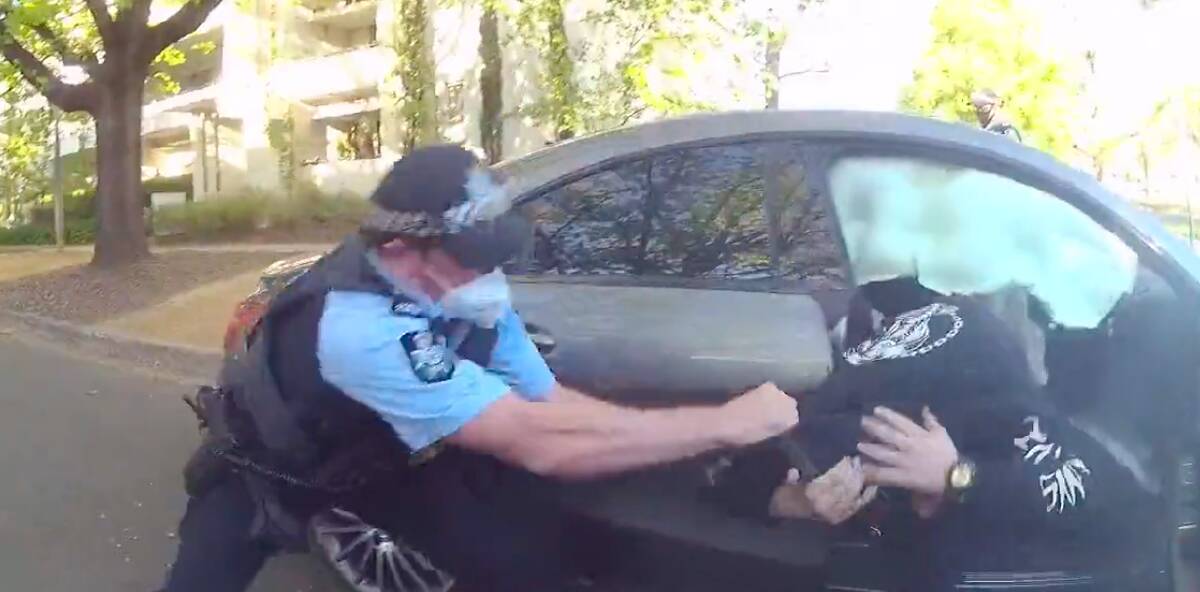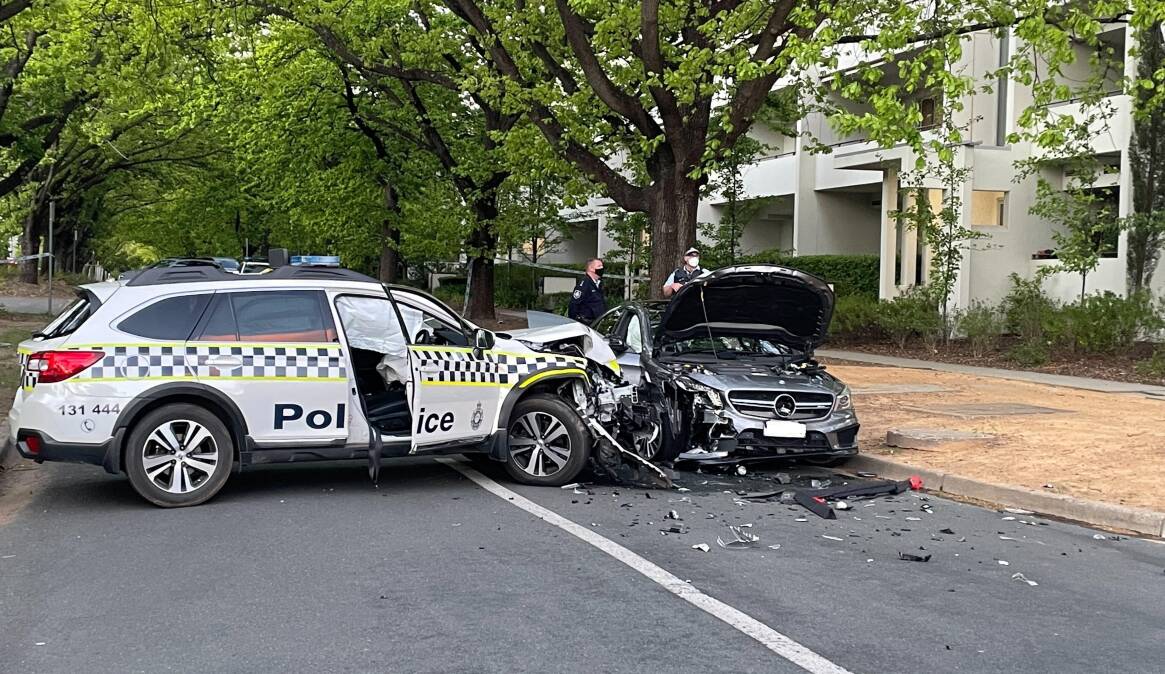The union representing Canberra's police has called for the ACT government to conduct a review into "soft" sentences for criminal offenders, saying officers are protecting the community only to be continually "let down" by the courts.
But Attorney-General Shane Rattenbury has rejected the request, which followed a teenager dodging time behind bars after crashing a stolen Mercedes-Benz into a police car, saying there is insufficient evidence to warrant "a wholesale review".
The Australian Federal Police Association said earlier this week it was "dismayed" by the ACT government's continued drug decriminalisation push after the young man involved in that incident received an intensive correction order.
The teenager, who cannot be named, was "high" on methamphetamine and "driving stupidly", as Justice Michael Elkaim put it, when he capped off two days of dangerous driving by smashing into a police vehicle in Turner last October.
The offender, who sped along a footpath and nearly ran over multiple officers during his crime spree, acknowledged during the sentencing process that he could have "lost [police] their lives when they were just doing their jobs".
Police association president Alex Caruana referred to this admission on Wednesday, saying the teenager receiving an intensive correction order was "a perfect example" of a sentence that did not "pass the pub test".

"An intensive correction order isn't stopping someone from offending and is a soft approach to serious and often recidivist offending," he said.
Mr Caruana also said the union regularly had contact with its members serving in ACT Policing, whose biggest concerns included sentencing and bail outcomes.
"We believe that ACT Policing is doing its job in protecting the community but is being let down by the judicial outcomes," he said.
"A perfect example relates to the teenager in the stolen Mercedes that nearly ran over three police officers and crashed into a police car.
"The teenager caused over $100,000 in damage and, by his admission, could have taken the lives of those officers doing their job.

"His sentence, if you can call it that, was an intensive correction order.
"At what stage does the risk to the community become important? Throughout all the commentary about recidivism offending, it always comes back to the police to address the matter. At what stage will responsibility be put on the judiciary? Who makes the judiciary responsible for their decisions?"
Mr Caruana pointed the finger at Mr Rattenbury, saying the Attorney-General must review sentencing practices and demonstrate that the penalties being dished out by the ACT's courts were in line with community expectations.
On Thursday morning, Mr Rattenbury said the ACT government did not think "a wholesale review" was required.
He said the government was "committed to evidence-based justice policy that effectively reduces and prevents crime", dismissing suggestions the teenager's sentence was "soft".
"Intensive correction orders are an effective and targeted way of reducing reoffending," Mr Rattenbury said.
"It is inaccurate to say they are a soft sentence, as they can be very demanding of the individual."
The Attorney-General noted such orders could include conditions like regular drug testing, community service work, curfews and attendance at rehabilitation programs, while offenders on them also needed permission to leave the ACT.
"Where appropriate, ICOs allow for an offender to serve their sentence in the community, without experiencing time in jail where they are frequently exposed to others who may encourage further criminal behaviour," he said.
"It can also mean they are not removed from their communities or families, who are often the most influential people in supporting them to change their ways."







